Prince Henrik of Denmark, consort to Queen Margrethe II, was, in many ways, the royal nobody knew what to do with—probably because he was the only royal who didn’t know what to do with himself. Henrik, who passed away in 2018, spent much of his life uncomfortably occupying a role he neither wanted nor understood. And yet, when you think about it, the entire idea of being a prince consort is designed to create that very unease. You’re handed a gilded cage and a title that is meant to make you stand quietly beside someone far more important, and the world expects you to be grateful for it.
Before he became the royal misfit of Scandinavia, Henrik was Henri—Henri Marie Jean André de Laborde de Monpezat—born in the French town of Talence in 1934. His childhood was a collage of privilege, colonialism, and upheaval. Raised partly in French Indochina, he was fluent in Vietnamese before he learned proper Danish, which, let’s be honest, he never quite did. His family claimed noble ancestry, though the monarchy didn’t always agree. Still, young Henri grew up believing himself to be somebody—and not just anybody, but someone destined for something significant. Perhaps that was his first great disappointment: that significance, as it turns out, doesn’t always come with a throne.
He served in the French Army during the Algerian War, an experience that gave him discipline, a lifelong love of uniforms, and a very specific fondness for medals. He adored them—not just the military ones, but any badge, star, ribbon, or sash that could be pinned to his chest. And honestly, who among us doesn’t want our efforts recognised in gold plating? Henrik collected honours like other men collect regrets, and every ceremony that didn’t include one more medal must have felt like a slight.
His obsession with titles extended beyond medals. Though born Henri de Laborde de Monpezat, his family's nobility was, let’s say, of the self-declared variety—more aspirational than official. For years, the Danish court tactfully ignored the 'Count' in his family history. But in 2008, after more than four decades of diplomatic sulking, Margrethe granted the title 'Count of Monpezat' to both their sons and their male-line descendants. It was a small yet deeply symbolic victory: Henrik had managed, at last, to smuggle his French legacy into the Danish royal bloodstream. No, he wouldn’t be King—but Count? That they could do. A half-win, but for Henrik, it was a triumph dressed in heraldry.
Henrik met Margrethe in London, where he was working as a diplomat at the French Embassy, and she was still a crown princess with a sketchpad and a cigarette holder. Their courtship, though discreet, was genuine—built on long conversations, shared appreciation for art, and, one suspects, mutual bemusement at the formality of royal life. They spoke French together, a language of poetry and diplomacy, which perhaps allowed them to ignore, at least temporarily, the harsher vowels of dynastic reality.
Was it love? Perhaps. Or perhaps it was that more complicated royal version of love: mutual respect, aesthetic compatibility, and a shared willingness to leap into an arrangement that no sane civilian would ever accept. She liked his mind, his manners, and the fact that he didn’t immediately genuflect to protocol. He liked her sharpness, her intellect, and—let’s be honest—the idea of being married to a future queen.
When they decided to marry, Henri had to surrender nearly everything: his religion, his citizenship, his very name. 'Henrik' was the Scandinavian rebrand—a diplomatic invention with none of the Gallic flair he was born with. It was, in a sense, a wedding present to the Danish people: a husband who came pre-adjusted, if not quite pre-approved. The Danes, famously allergic to ostentation, weren’t overly impressed. He, on the other hand, had traded in Parisian freedom for the weight of northern restraint.
Henrik arrived in Denmark with a sense of grandeur about himself, as the French do. His upbringing had instilled in him a certain expectation of how a life in aristocracy—or at least supposed aristocracy—ought to look; because apparently, no Frenchman is truly content unless he’s at least vaguely aristocratic. It’s not surprising he wanted to bring a little of that charm, elegance, and, let’s be honest, superiority to the cold northern shores. But Denmark, let me tell you, is not France. The Danes have a particular affection for understatedness, for blending in, for not thinking you’re better than anyone else—even when you are the queen’s husband.
Henrik, on the other hand, spent his royal career insisting on standing out—and frowning his way through it. Dubbed "The world’s grumpiest royal" by the press, he was a man who simply could not understand why being consort meant second place. Why on earth, he seemed to wonder aloud, would the world expect him to settle for anything less than the title of king? To which the Danes, bless their pragmatic little hearts, collectively shrugged and said, "Because that’s how it works." Henrik’s continual refusal to accept his fate as consort made him both endearing and infuriating, like a child who keeps insisting that Santa Claus should bring him a pony when all the adults know a stuffed reindeer is more realistic.
There was also the matter of language—Henrik’s Danish remained heavily accented, despite decades in the country. It wasn’t just a linguistic gap; it was symbolic of a broader cultural disconnect. He never quite blended in, no matter how hard he tried—or perhaps because he didn’t really try that hard. While Margrethe smoked and sketched her way through constitutional duties, Henrik quoted French poetry, made wine, and sulked about protocol. He was, in essence, a man of Southern temperament trapped in Northern restraint.
In private, though, he tried to make Denmark home. When he married Margrethe in 1967, he abandoned his Catholicism, his French citizenship, and the name Henri—all for love or duty, depending on how generous you're feeling. The early years of their marriage were marked by that honeymoon tension of assimilation—him trying to fit into a role that didn’t quite exist, her trying to assure the public he was fit to wear it. When their sons, Frederik and Joachim, were born, Henrik took genuine pride in fatherhood. He was, by all accounts, an affectionate parent, deeply involved in their upbringing—he cooked for them, read them bedtime stories in French, and tried, often awkwardly, to pass on the rituals of a culture that wasn’t quite theirs. He adored them, but even that relationship bore the weight of hierarchy. The boys were Danish through and through, blond-haired and blue-eyed symbols of the future, while he remained the outlier—the French father who never quite got the jokes at dinner.
What wounded him most was the knowledge that his sons, particularly Frederik, would grow up to surpass him not just in rank, but in symbolic stature. One day, Frederik would be King—without having to fight or frown for it. Henrik, meanwhile, had spent a lifetime trying to be more than consort, only to be reminded, at every turn, that succession is not contagious. He loved his sons, but the crown they would inherit remained a crown he could never wear. That proximity to power, so close and yet untouchable, left its mark. And perhaps that’s why Henrik’s relationship with them was laced with both tenderness and frustration—a strange fatherly pride mixed with the quiet sting of irrelevance.
But that wasn’t Henrik’s only gripe. He wanted recognition, not just as royalty, but as a man of culture, an artist, and a poet—three things Denmark was not necessarily looking for in its royal house. He published books of poetry, dense with introspection and longing, yet few Danes cared to pick them up. His verses spoke more to his own inner world than to the public’s imagination. Beyond poetry, he fancied himself a winemaker, cultivating vineyards in the south of France—a far cry from Denmark’s modest beer-drinking traditions and straightforward tastes. His attempts to bring a touch of French elegance and refinement to Denmark’s royal image often felt like a fish out of water, an outsider’s flair clashing with Scandinavian understatement. He longed for a life where he was appreciated not just for whom he married, but for who he truly believed himself to be: a king of culture, trapped in the bland role of the queen’s shadow.
His vineyard in Cahors, Château de Caïx, was more than just a retreat; it was a sanctuary and a symbol—a lush escape nestled far from the frost of Danish duty and the cold protocol of court life. There, away from Copenhagen’s formalities and the ceaseless expectations of royalty, he was no one’s consort—just Henri, the eccentric Frenchman pruning vines, nurturing grapes, and bottling poetry. It was perhaps the only place where he felt a semblance of freedom, an illusion of autonomy that the crown and ceremony so often denied him. Surrounded by the rich earth, books stacked on the table, and the gentle rhythm of nature, he could reclaim a part of himself that the palace walls seemed to smother.
What Henrik wanted was not unreasonable. He wasn’t some brutish royal clamoring for power for power’s sake. He simply sought acknowledgment—the validation of his identity beyond the ceremonial. His quest to be crowned “king” wasn’t merely a tantrum about rank, though it often looked like one to outsiders. In Henrik’s mind, being called king would legitimize his role and importance, elevating him from the perpetual “queen’s plus-one” to someone with true agency and respect. He wasn’t content with being a decorative accessory to Margrethe’s reign—he wanted the glory of standing beside her as an equal partner, a fellow sovereign in spirit if not in title.
At one point, Henrik even withdrew from a royal New Year’s gala in protest—an act that sent court reporters into a frenzy and left protocol officers scrambling to maintain their composure. Invitations went unanswered, seats remained conspicuously empty, and whispered rumours swirled like smoke through the gilded halls. But that was Henrik in a nutshell: if he couldn’t reign, he’d at least make sure people noticed he wasn’t reigning. His occasional absences from state functions evolved into a kind of low-key performance art—a minimalist rebellion staged amid an era of maximal decorum and careful smiles. It was less a tantrum and more a slow burn of discontent, a way to voice his protest without upending the entire monarchy.
The Danish monarchy, however, was not about reinvention. It was a system designed to endure, to be steady and reassuring, not to be rattled by the restlessness of a royal who wanted more than a place in the portrait gallery. While Margrethe quietly puffed on her cigarettes, sketching and navigating the constitutional waters with measured calm, Henrik was often sulking miles away in the family’s French vineyard—his personal exile. His dramatic refusal to be buried next to his wife was a final, theatrical crescendo in a life spent grappling with belonging. It was a perfectly reasonable response from a man who felt his contributions were misunderstood or dismissed. The decision was a symbolic rebuff of Danish tradition—a last, unmistakable message that while he was close enough to be part of the nation’s history, he would always remain, in some sense, an outsider.
Yet Henrik’s rebellion transcended mere personal grievance. It was a subtle, persistent critique of monarchy itself—a system bound by inherited roles, rigid expectations, and the slow creep of tradition. Even those at the pinnacle can feel imprisoned by the roles assigned to them. Henrik’s frustration with his consort status shone a light on monarchy’s stubborn resistance to change. He dared to ask questions that many quietly consider but few voice: Why must a husband be lesser than his wife simply because she wears the crown? Why must a man sacrifice his identity for a system that often refuses to evolve? His dissent was not just a complaint; it was a challenge to the very foundations of royal protocol.
The real tragedy, perhaps, was not that Henrik was denied a crown but that he never quite found one that fit. His talents—intellectual, artistic, emotional—were ill-suited to the ceremonial role he was expected to play. He didn’t aspire merely to be a Danish prince; he longed to be a French king, or at least a sovereign of letters and culture in his own right. And perhaps no country, not even one as tolerant and progressive as Denmark, could grant him that freedom. His story is a poignant reminder that sometimes the heaviest chains are not of metal but of tradition—and that even in a world of privilege, one can still be a prisoner of one’s own title.
The final chapters of Henrik’s life were steeped in melancholy. In 2017, the palace announced he had dementia. The man who had once prided himself on intellectual flair—reciting Baudelaire at dinners, debating philosophy with reporters—began to fade. The country that never quite embraced him mourned quietly, with that Nordic restraint he had always found vaguely infuriating. When he died in 2018, there was sadness, but also a sense of narrative completion: Henrik had played his part, complained through every scene, and exited on his own, uncompromising terms.
In a moment that felt almost like a reluctant bow to his lifelong defiance, Queen Margrethe performed a deep curtsy before his coffin during his funeral—the closest she ever came to acknowledging him with the regal reverence he so craved, even if it was posthumous. It was as if, finally, the rigid protocol softened, making room for the man behind the grievances—the grumpy prince who had never stopped asking for more than tradition allowed.
One might almost feel sorry for the prince—if he hadn’t been so theatrical about it. His inability to accept his royal lot reads more like a failure of imagination than a failure of destiny. After all, one could argue that Henrik had all the tools to carve out a unique role for himself within the confines of the monarchy. But instead of working with what he had, he seemed intent on complaining about what he didn’t. He wanted power, but was given prestige; he wanted attention, but was met with affection; he wanted to be king, but ended up as an eccentric footnote in Denmark’s royal history.
There’s something to be said for Henrik’s audacity, though. He spent decades railing against the system that had “crowned” him without ever giving him the authority he craved. He was, in many ways, a royal anomaly—a man who wanted to rule a kingdom but never could. And in his quest to find meaning in his station, he exposed the absurdity of monarchy itself: a world where titles are granted without merit, where duty is sometimes more important than identity, and where one can be a prince but never quite feel like one.
It’s almost poetic that Henrik’s legacy is less about his time as prince consort and more about his battle with the limitations of that role. He may have been the royal who didn’t know his place, but at least he wasn’t afraid to ask why. In doing so, he became something of an anti-royal within the royal family—a man who reminded us, through his many acts of rebellion, that even in a system as entrenched as monarchy, there’s still room for dissatisfaction, for questioning, and for seeking something more.
While the Danish people may never have fully understood Henrik, there’s a certain charm in being the rebel in a sea of deference, even if the rebellion was mostly about the title on your tombstone. And maybe that’s where Henrik succeeded—by failing so insistently, he forced everyone to notice just how absurd the rules really were.




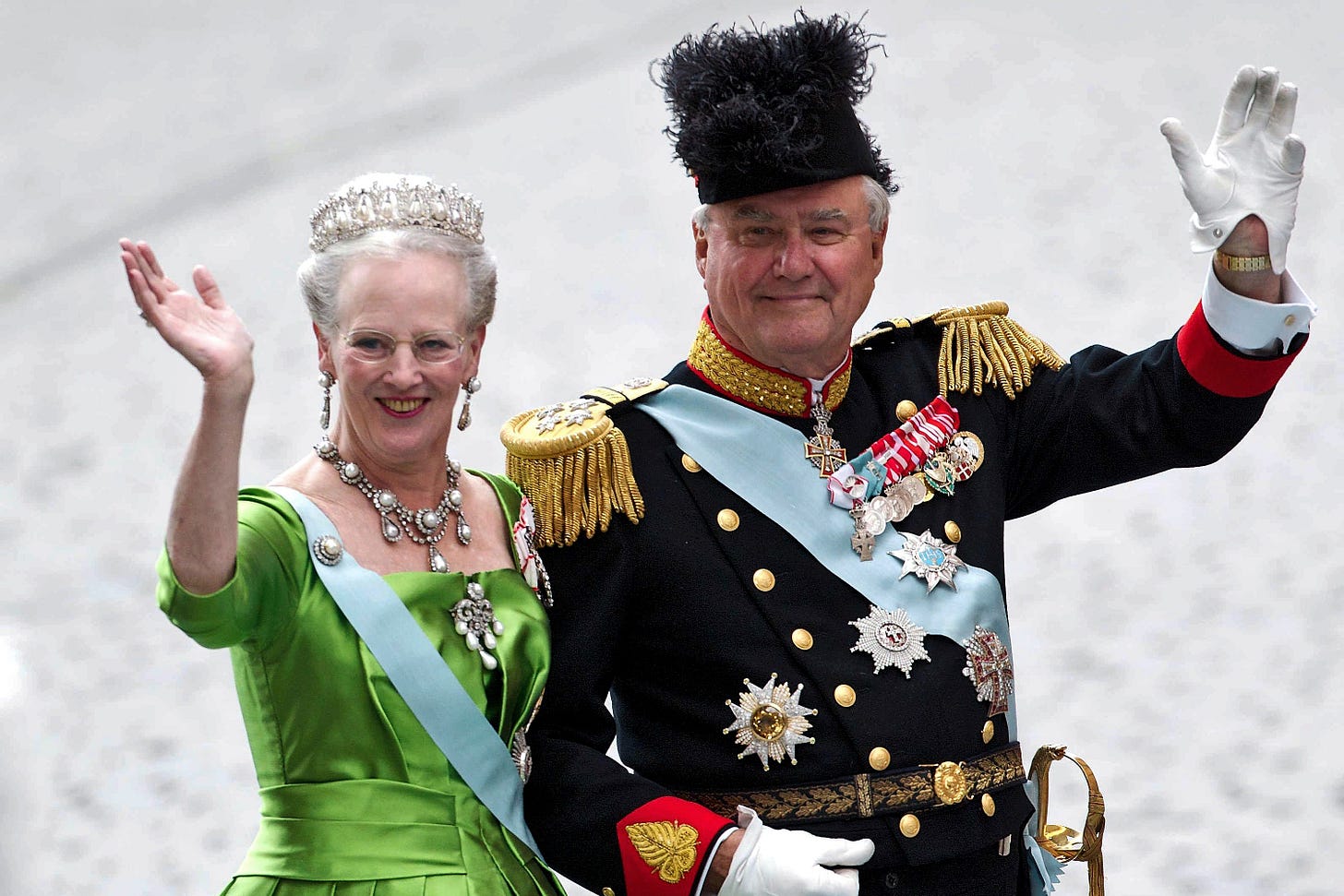

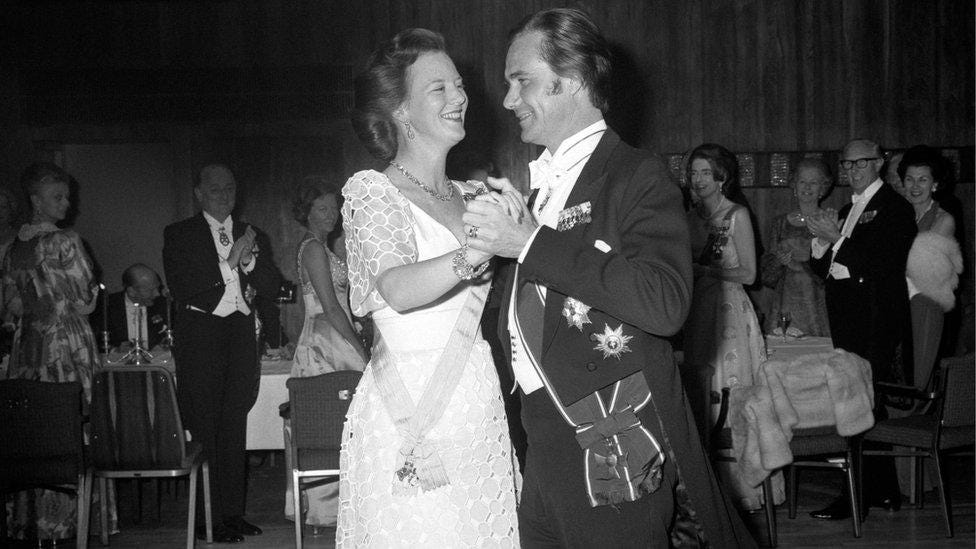
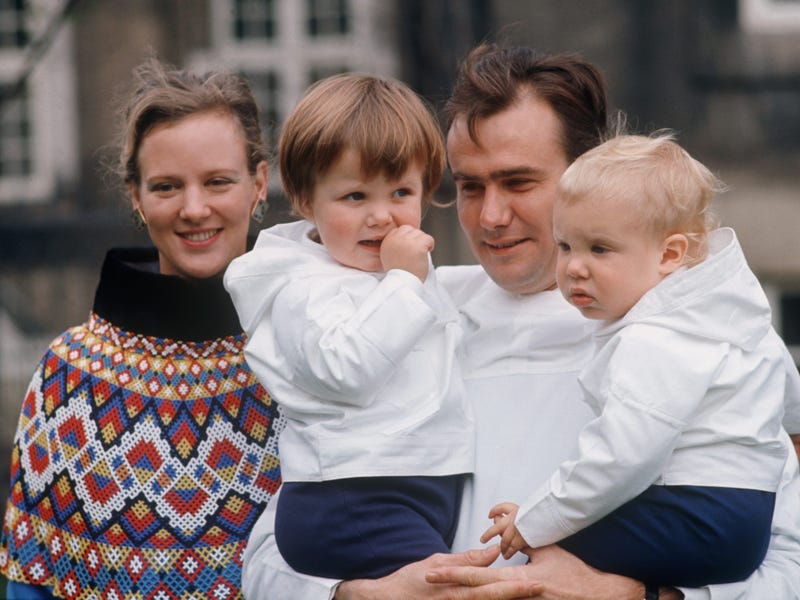

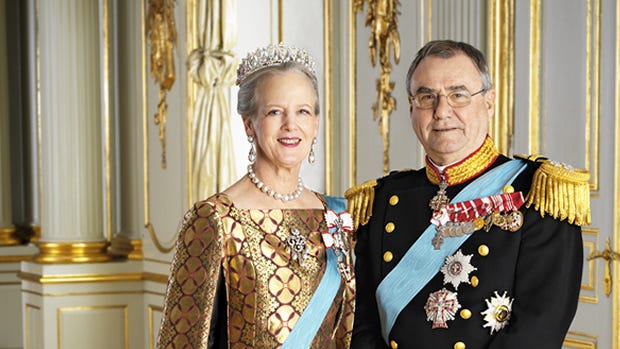
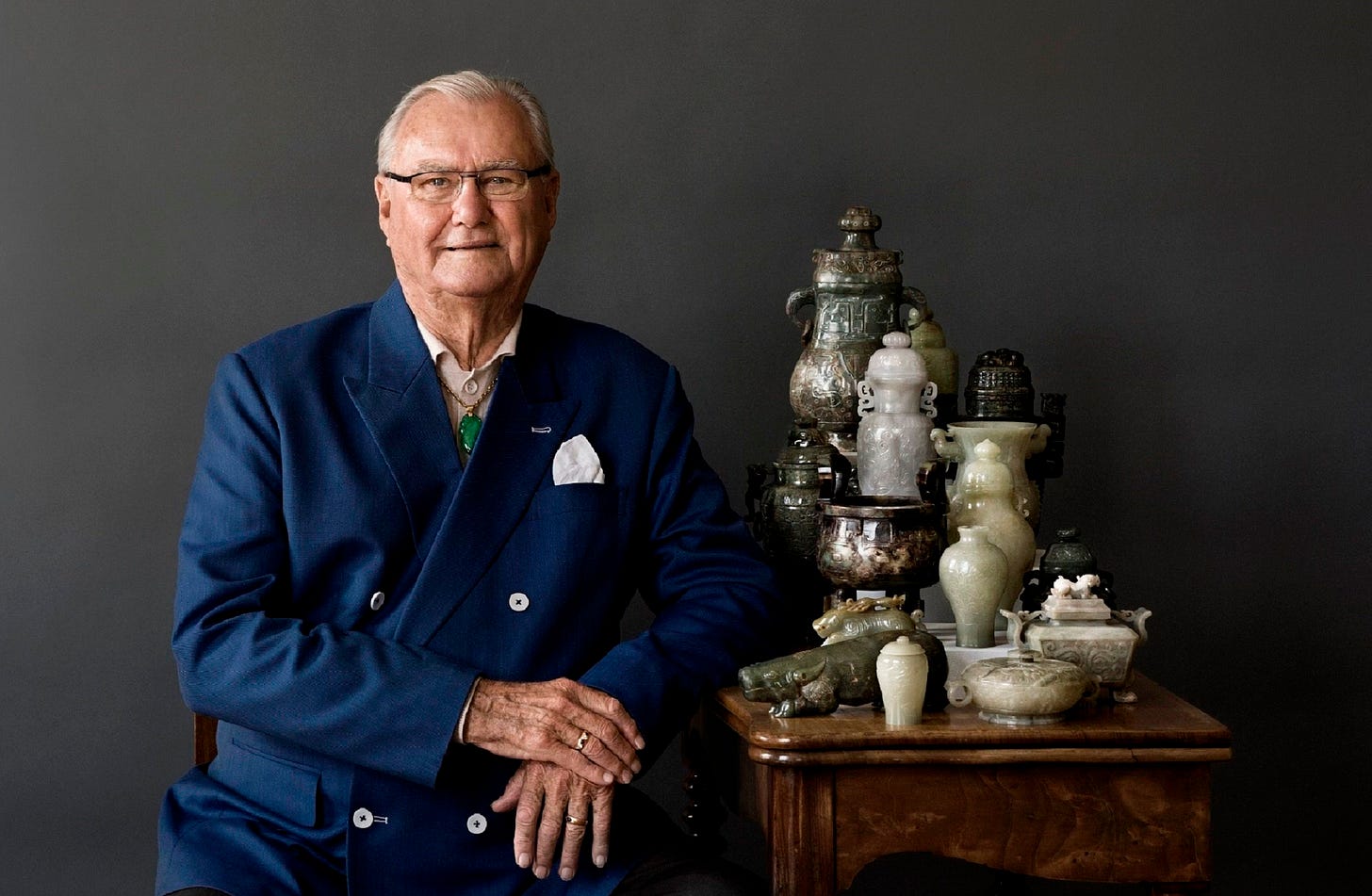
Incrível como voce foi uma das pessoas que conseguiu enxergar o que ele queria mostrar. Até certo ponto o trabalho dele foi reconhecido. Adorei a escrita!